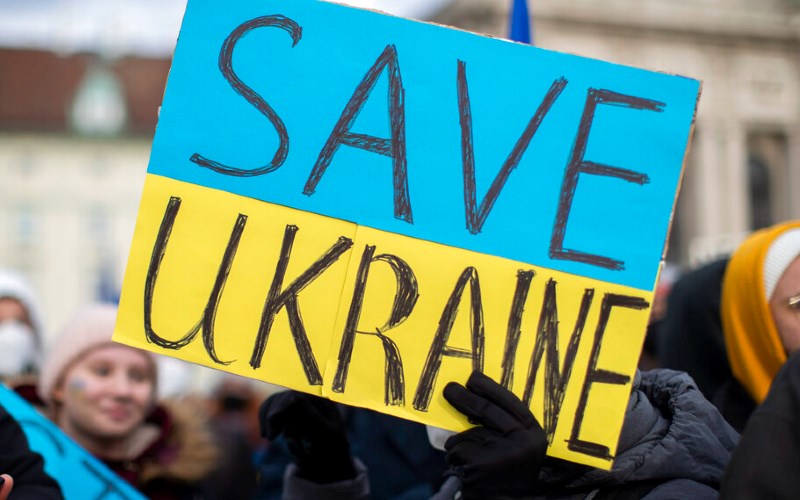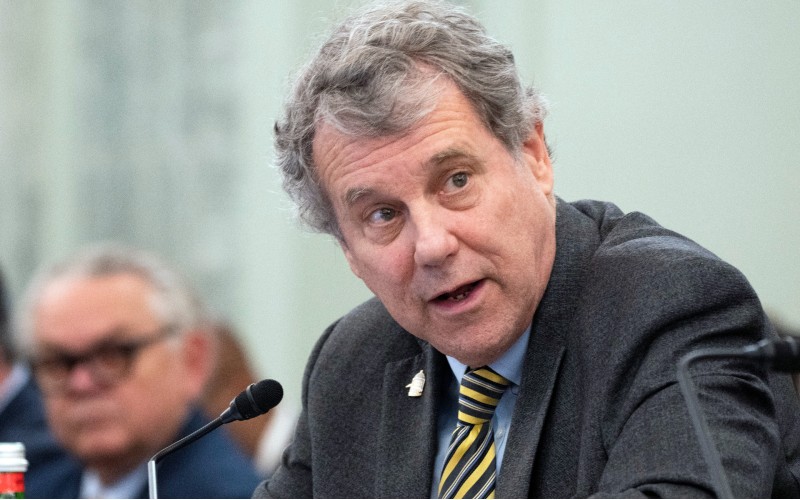On the "Washington Watch" show Monday, U.S. House Rep. Bob Good (R-Virginia) gave a hint at what September appropriation battles could look like when Congress returns from its August break. He told show host Jody Hice that President Joe Biden wants an additional $24 billion in aid for Ukraine but Biden’s request comes with no strategy attached.
“So, let’s just give the President more money, but he doesn’t have to have a strategy or a plan on how he’s going to use that money or how Ukraine’s going to use it for that matter?" Good complained. "We’re just going to give them more money with no accountability on top of the well over $100 billion that’s already been sent?”
For now, the answer to that question appears to be "Yes." The House passed a number of amendments to its version of the National Defense Authorization Act in July, but one that didn’t get the needed votes would have required the President to present a plan along with any additional requests for Ukraine assistance.
 Ukraine already has a longtime reputation for political corruption, and that concern is only heightened when billions of dollars are flowing into the country with no way to track it.
Ukraine already has a longtime reputation for political corruption, and that concern is only heightened when billions of dollars are flowing into the country with no way to track it.
Last week, in the middle of a struggling counter-offensive, Ukraine's president announced he had fired every top military recruiter in his country - 33 of them in all - after a probe uncovered rampant corruption, including "illicit enrichment." Ukraine's recruiters are reportedly yanking draft-age men off the street but recruiters - with money in their pocket - were helping some sneak out of the country.
In January, several top officials - defense ministers, a federal prosecutor, and five regional governors - resigned over allegations of corruption. The deputy infrastructure minister was arrested for embezzling $400,000 in aid money, Axios reported.
Meanwhile, according to the U.S. Debt Clock, U.S. government debt is currently $32.7 trillion, a debt-to-GDP ratio of 119%. That percentage was 56% in 2000 and 34% in 1980, when the U.S. was experiencing a terrible inflation much like today.
 U.S. debt is just one of many crises that have been created by the Biden administration, Good also warned, and the federal government budget is not in good shape to handle more Ukraine spending in good conscience.
U.S. debt is just one of many crises that have been created by the Biden administration, Good also warned, and the federal government budget is not in good shape to handle more Ukraine spending in good conscience.
The irony is that any Ukraine assistance that comes from the U.S. will originate from China which is in partnership with Russia.
The U.S. has no cash on hand to rebuild fire-ravaged Hawaii much less fight wars overseas, Good said.
“We're borrowing all of that money from China. We don't have the money. We're borrowing the money for every dollar that we're sending Ukraine. We're borrowing it from our kids and our grandkids were borrowing it from China,” Good said.
Whose borders are we protecting?
Good said Biden requested $24 billion for Ukraine but only $4 billion for the U.S. border with Mexico.
“Only $4 billion for our own border, and that's not even to secure the border. That is only to facilitate more illegals to invade our country as fast as they can as quickly as they can,” Good said.
“And they’re going to try to stick in their disaster relief for what’s happening in Hawaii. While our hearts go out to those in Hawaii, our prayers are with the 100 that we know of lives that have been lost and more to come It seems almost for sure, but we ought to take that money and repurpose it from someplace else in our bloated budget, our reckless spending budget. That’s how we want to take care of disaster needs.”

U.S. debt is spread among a number of countries with $859 billion owed to China, second only to America’s $1.1 trillion owed to Japan.
If Biden won’t commit to how the money is being spent, it leaves the administration free to fund many of its social engineering projects particularly in the U.S. military.
“You've got an administration that thinks climate is the greatest threat to the country, at least that's what they've told the military. They think the military is a social experiment to see how many transgender individuals they can have, how many abortions they can fund, how much they can climatize the military by moving to electric vehicles and things like that,” Good said.
Such initiatives have weakened the country’s confidence in the administration, Good said.
“This department of Defense, this military knows what they're doing. We're depleting our own resources and affecting our own readiness with what we're sending over to Ukraine,” Good said. “We're told we can't win a war with China right now, and we're sending all these resources and weaponry and systems over to Ukraine to help them.”
'What's the end game?'
It’s a hard sell to Americans who know the landscape, Good said. There’s a humanitarian component in assistance with any foreign conflict, but $100 billion in aid – and growing – raises eyebrows.
Americans understand that Ukraine is not a NATO member and therefore the U.S. is not contractually obligated to assist.
They also don’t see European allies committed to the fight, Good said.
 “How is this in America's national security interest? You can be against Russia, and against Putin, against what they've done. You can condemn it and stand against it, and still not think that it's in our direct national security interest to wage this battle,” Good said.
“How is this in America's national security interest? You can be against Russia, and against Putin, against what they've done. You can condemn it and stand against it, and still not think that it's in our direct national security interest to wage this battle,” Good said.
That context makes Biden’s blank check request even more suspicious.
“What’s the end game? What's the exit strategy? What does victory look like? How do we resolve this in the long-term?" the Congressman demanded. "Ukraine, we know, is a corrupt country. It's not a democracy, and it’s not a member of NATO.
“This, I would suggest, is just not the United State’s fight,” Good continued. “We’ve done more than anyone else has done already, and we’ve borrowed the money to do just that.”







